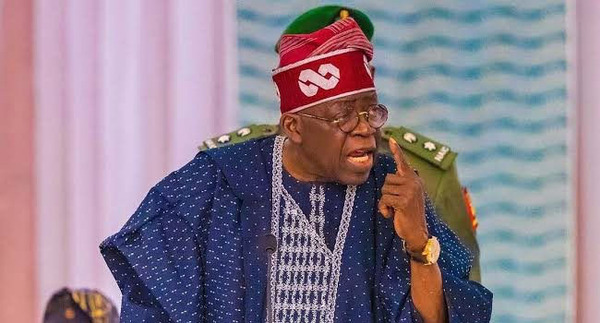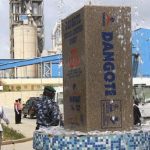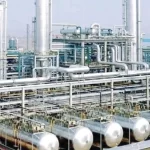President Bola Tinubu has directed the Nigerian National Petroleum Company Limited (NNPCL) to sell crude to Dangote Refinery and other upcoming refineries in Naira.
The special adviser to the president on information and publicity, Bayo Onanuga, made this known in a post via his official X handle on Monday, July 29.
Recall on July 18, Farouk Ahmed, chief executive officer (CEO) of the Nigerian Midstream and Downstream Petroleum Regulatory Authority (NMDPRA) said local refineries, including the Dangote refinery, produce inferior products compared to the ones imported into the country.
Dangote denied the allegation by testing diesel from his refinery on July 20 when federal lawmakers visited the plant.
The billionaire, who alleged international oil companies (IOC) are not supplying crude oil to his refinery, also called for a probe into the allegations made by the NMDPRA.
On July 22, the lawmakers launched investigations into Ahmed’s claim.
They said allegations that the IOCs in Nigeria are frustrating the survival of the Dangote refinery will also be probed.
Onanuga, who announced President Tinubu’s directive, stated that the move, which is to ensure the stability of the pump price of refined fuel and the dollar-Naira exchange rate, was adopted by the Federal Executive Council today.
He said: “To ensure the stability of the pump price of refined fuel and the dollar-Naira exchange rate, the Federal Executive Council today adopted a proposal by President Tinubu to sell crude to Dangote Refinery and other upcoming refineries in Naira.
“Dangote Refinery at the moment requires 15 cargoes of crude, at a cost of $13.5 billion yearly. NNPC has committed to supply four.
“But the FEC has approved that the 450,000 barrels meant for domestic consumption be offered in Naira to Nigerian refineries, using the Dangote refinery as a pilot. The exchange rate will be fixed for the duration of this transaction.
“Afreximbank and other settlement banks in Nigeria will facilitate the trade between Dangote and NNPC Limited. The game-changing intervention will eliminate the need for international letters of credit. It will also save the country billions of dollars used in importing refined fuel.”














